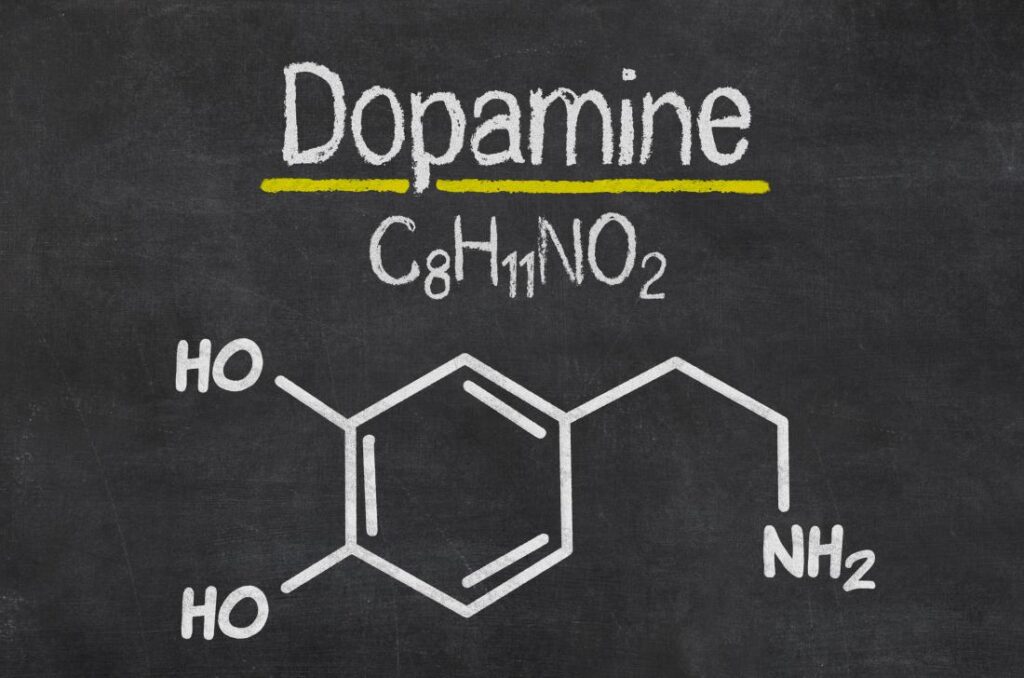Dopamine is a neurotransmitter, a chemical that plays a crucial role in the brain’s communication system. It has a profound impact on various aspects of our psychology and behaviour. Here are some of the key ways in which dopamine affects our psychology:
Reward and Pleasure: Dopamine is often referred to as the “feel-good” neurotransmitter because it is strongly associated with feelings of pleasure and reward. When you experience something pleasurable, such as eating delicious food or receiving praise, your brain releases dopamine. This reinforcement encourages you to repeat the behaviour that led to the pleasurable experience.
Motivation: Dopamine plays a central role in motivation. It helps drive us to pursue goals and take action to achieve them. When dopamine is released in response to achieving a goal or making progress, it reinforces the behaviour, making us more likely to continue working toward our objectives.
Learning and Memory: Dopamine is involved in learning and memory processes. It helps strengthen the connections between neurons in the brain, making it easier to remember information and experiences associated with rewarding outcomes.
Emotion: Dopamine influences our emotional responses. An imbalance in dopamine levels is linked to mood disorders such as depression and bipolar disorder. Low levels of dopamine can lead to feelings of apathy and anhedonia (an inability to experience pleasure), while high levels may contribute to impulsivity and mania.
Attention and Focus: Dopamine is essential for maintaining attention and focus. It helps regulate the brain’s attentional processes, enabling us to concentrate on tasks and filter out distractions.
Addiction: Many addictive substances and behaviours, such as drugs, alcohol, gambling, and even certain foods, can lead to increased dopamine release. Over time, this can create a reward-seeking cycle that contributes to addiction. People with addiction often experience cravings and withdrawal symptoms when dopamine levels are disrupted.
Movement and Motor Control: In addition to its role in the brain’s reward system, dopamine is also involved in motor control. A deficiency of dopamine in specific brain regions is associated with movement disorders like Parkinson’s disease, which can lead to tremors and difficulty in coordinating movements.
Social Behaviour: Dopamine plays a role in social bonding and interactions. It can enhance feelings of trust and attachment, which are essential for forming and maintaining relationships.
It’s important to note that dopamine’s effects on psychology are complex, and its function can vary depending on the brain region and context. Imbalances in dopamine levels have been linked to various psychiatric and neurological disorders, including schizophrenia, addiction, and mood disorders. Understanding the role of dopamine in the brain is essential for comprehending a wide range of human behaviours and experiences.
